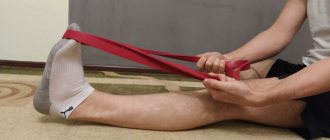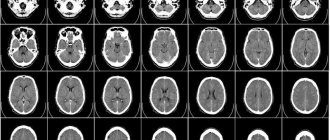Being afraid is harmful
Fear of the dentist manifests itself in different ways. From mild discomfort to panic attacks. In the latter case, we are talking about dental phobia - a disorder in which fear clouds the mind so much that the patient is not able to independently go to the dentist even in severe pain, and once in the chair, does not answer questions, tries to interfere with the doctor’s actions and may even lose consciousness.
But milder forms of fear can also be dangerous.
Fear of dentists is “harmful” stress
The fear of dental treatment, like other obsessive fears, has negative consequences:
- avoiding a frightening situation. A visit to the clinic is constantly postponed, due to which the disease progresses, teeth are destroyed more and more, and more and more complex, lengthy and expensive treatment is required;
- fear depresses the nervous system, which leads to various disorders;
- before visiting the dentist, sleep and digestive disorders, irritability, and anxiety appear;
- if your loved ones do not share your fears and do not consider going to the dentist a feat, then there is a high probability of conflict;
- During the appointment, unpleasant conditions may occur: dizziness, pressure surges, pain of various types;
- if your body is tense due to fear, you will flinch from every touch, which makes the doctor’s work difficult.
Features and types of dentophobia
Fear of dentists is a phobia that has no rational basis and is based primarily on psychological discomfort, and not at all on physical pain. It is expressed in the fact that a person experiences panic fear of any dental procedures in his oral cavity. Such people usually wait until the last minute to visit the dentist and turn to him only when the condition of their teeth becomes completely neglected. Before this, they often resort to alternative medicine, only aggravating the situation. Psychological research shows that there are three different forms of dental phobia:
- ;
- Acquired. This form is the most common. Based on negative experiences associated with too painful or lengthy dental treatment. A person with this form of dental phobia usually delays his next visit to the dentist until the last minute. When he finally gets to the dentist’s office, due to the advanced disease, the treatment procedure turns out to be too complicated and lengthy, which only strengthens the negative perception.
- Congenital. The rarest form of dental phobia, not associated with any negative experience. Manifests itself in an unreasonable fear of any manipulation in the oral cavity. After the first dental treatment, it is possible to either get rid of the phobia or worsen it with the appearance of a negative attitude towards dentists in general.
- Imaginary. This fear occurs in people who have never visited a dental office. It is explained by a wild imagination and incorrect perception of the entire treatment process. Usually, it is enough to overcome the fear of the dentist once, and after successful treatment, the imagined dental phobia goes away forever.
;
;
Any of the listed forms of fear of dentists can cause a person to delay a visit to the dental office until the last minute. Such delay contributes to damage to neighboring teeth and gums, the development of pulpitis and other chronic complications. Most often, dental phobia has the following manifestations:
- ;
- anxiety or even panic;
- tension and trembling in the muscles;
- looking for a reason to postpone treatment;
- loss of control over one's own thoughts and actions;
- nervousness and sweating;
- felt tachycardia, pressure drops;
- all kinds of digestive system disorders;
- causeless dilation of pupils;
- pre-fainting states;
- feeling of helplessness and hopelessness.
;
;
;
;
;
;
;
;
;
Practice shows that previously dental phobia could be so strong that full dental treatment became simply impossible. People were afraid of any manipulation in the oral cavity and even refused prosthetics. Advanced dental diseases greatly affected a person’s appearance and interfered with building social connections and building a personal life. Despite the fact that dental phobia greatly spoiled the quality of life, there was practically no help for people with such problems before. Today the situation is somewhat different, and patients are helped to get rid of the fear of the dentist using modern psychotherapeutic methods. Such help involves a detailed study of the problem with the identification of events that caused the development of pathological fear.
How to overcome fear
The fight against fear is carried out comprehensively in two directions:
- calm the body: take sedatives, do breathing exercises, play sports or relaxation - there are many methods, everyone chooses what suits him best;
- calm the mind: look at the root of fear and explain to yourself that there is nothing to be afraid of.
The first point implies an individual approach, so we cannot give specific recommendations: one person is soothed by chamomile baths, and another by a forty-minute run at six in the morning.
Many people benefit from friendly support and the opportunity to get distracted. In this case, ask one of your family or friends to accompany you: firstly, during cheerful chatter you will not be able to plunge into frightening thoughts, and secondly, your accompanying person will provide you with insurance in case at the last moment you want to cancel the appointment or Because of fear, you will forget the doctor's recommendations.
If you are used to relying on yourself or want to deal with fear once and for all, then you will have to dig deeper and figure out what exactly frightens you so much at the dentist.
What can you do to relieve fear?
In my experience, it is often easier for adults to overcome fear by increasing awareness.
A person is afraid not of the intervention itself, but of the unknown. The patient somehow scares himself, describes what is happening in his imagination, and relies on unreal things. True, there is also a point here: it may turn out that the real intervention is in fact more terrible than what the patient imagines. Therefore, in preventive conversations I do not show huge needles during a tour of the office, and in general, before such conversations, it is better to understand what exactly the patient is afraid of, so as not to frighten him even more with a demonstration of the arsenal of the Inquisition. From experience, no one is afraid of a spatula; I show it first.
In general, the psyche works like this: if some terrible thing happened to you and you are afraid, then the doctor can say:
- Well, patient, my tongue has turned green. Happens.
And then the doctor names some Latin word.
Hop - and you calm down, because in this short phrase there is information that you have something known, understandable, it has a term, and this happens not only to you, but to many in general. And if there is a term, it means that the phenomenon becomes not an unknown dangerous thing, but an understandable dangerous thing. It’s the same with fear: this is a unique event for the patient, but for the doctor he has hundreds of episodes a month. People are afraid that they are not like everyone else, and knowing that a doctor sees fear every day is also reassuring.
There is a lot of fear of losing control. The doctor gains power over you - and this is terrible. Therefore, you need to agree on the process and give the opportunity to manage it.
- When you say “ahh” or “stop” or blink twice, I will stop.
When I was a student, while studying pediatric dentistry at the department, children with moderate fear (without panic) were given a toy remote control on a wire before an intervention, and the wire stretched somewhere beyond their field of vision. The doctor turned on the drill and asked to press the red button on the remote control. The child pressed, the doctor saw that he was pressing and released the pedal. At this point, anxiety was greatly reduced. Then the duration of iterations was longer: drilled, washed, drilled again - these are far from modern devices. The main thing is to really stop when the patient asks, and not “now, just a second.”
Patients are also often afraid of the whistling sound of the turbine tip - this is the same dangerous bzzzz, turning into an inhuman whistle, which you may have heard in childhood. In our country, nozzles with such a rotation speed are rarely used; in the expensive segment, it is possible to afford other materials that allow us not to choose a turbine design. As a result, probably once every hundred patients I take out turbine tips (they are now used to saw massive structures).
Some are afraid of a rubber dam (cofferdam) - a latex scarf for isolating the oral cavity, which is generally needed for any more or less invasive interventions, including working with caries. If the patient is prone to claustrophobia, then he will be afraid of isolation - because the main fear there is the fear of suffocation, and the curtain of the oral cavity causes the same fear. You can make a hole in an unimportant place in the rubber dam - it will be easier for the patient.
Patients also like it when they are told in advance how long they need to endure. They are often afraid or embarrassed to ask questions. You tell a person that the worst thing lasts 15 seconds on this tooth and 25 seconds here, he understands the time distribution and does not panic ahead of time.
A very important point in fear is that a person has to face the inevitability of losing the illusion of immortality. We don't see atherosclerotic plaques, we don't see ulcers, we don't see how joints age and wear out. And here you cannot miss the evidence of mortality in dentistry, it is obvious and is in an area that is emotionally charged. And this is one of the hardest experiences in life. This fear is on a level with loss of reason and existential fear of loneliness and is one of the honorable three most terrible things for a person. But usually it is tested before going to the doctor. Often - instead of going to the doctor, alas.
What are patients afraid of?
The most common fears can be divided into 4 groups.
Fear of pain
The most popular is also the most baseless. Thanks to modern drugs and equipment, today dental treatment is almost painless. The maximum discomfort is caused by the injection of anesthetic. If you do not agree to endure this, ask your doctor to apply topical anesthesia before the injection.
Against fear of pain - confidence in reliable pain relief
To cope with your fear of pain, try:
- Read about anesthesia in dentistry. You will learn that “freezing” does not block the pain itself, but the nerve impulses, and within an hour (the average duration of the anesthetic effect), the brain simply does not receive signals about pain, which means you do not feel it;
- notify the doctor about your phobia: if necessary, you will be offered an additional dose of pain medication, and all manipulations will be performed with maximum attention to your well-being.
By the way, some people are afraid not of toothache, but of discomfort in other parts of the body. For example, sitting for a long time in an uncomfortable position can cause neck pain, especially if there are disorders in the cervical spine. The solution is obvious: tell the doctor about the problem area, and they will select a comfortable chair position for you, add a pillow, or take a rest break.
How does dental phobia arise and develop?
If there is strong fear that interferes with normal dental treatment, it is necessary to determine its root cause. Any previous pain can develop into a strong phobia that is difficult to eradicate. The task of doctors is to help a person get rid of anxious thoughts and convince him that modern dental treatment is a safe and painless procedure. Today, dentists have at their disposal modern equipment and anesthetic agents that allow them to carry out any dental operations almost painlessly. If previously local anesthesia was used only for complex operations in the oral cavity, today even the treatment of minor caries is carried out with anesthesia. And more complex dental treatment is increasingly performed under general anesthesia. Most patients are unaware of this and are afraid of experiencing severe and prolonged pain again. It is this ignorance that fuels their phobia. To understand how to get rid of the fear of dentists, it is necessary to identify the causes of its occurrence. Most often, phobias have the following causes:
- ;
- Acquired dental phobia usually develops as a result of negative experiences with dental treatment. In addition, the cause may be hypochondria or other mental disorders.
- The congenital form of phobia often occurs as a result of genetic pathologies or intrauterine processes that affect the development of the fetus and the metabolism of serotonin and norepinephrine in adulthood. These hormones have a strong influence on sensitivity and pain threshold, as well as on the tendency to anxiety and groundless worries. Most often, the innate fear of the dentist is explained precisely by disturbances in the metabolism of serotonin and norepinephrine.
- Imaginary dental phobia develops after reading frightening stories in the media or after stories from friends who colorfully described and embellished their negative experience of visiting a dental office. A person’s general distrust of doctors can greatly influence the development of imaginary dental phobia. Sometimes such fear can develop even in childhood, when the child is constantly frightened by the doctor, generously telling him what horrors await him if he does not brush his teeth.
;
;
Regardless of the primary cause of dental phobia, a visit to the doctor cannot be delayed, since the fear will only intensify and the situation will worsen. Ideally, you should go to the dental clinic at the first sign of tooth decay. In this case, the treatment will be as effective, fast and comfortable as possible.
Fear of the unknown
Imagine: a doctor frowns, shakes his head sadly, and then calls his colleagues to look into your mouth, and everyone starts using incomprehensible terms... Even the most courageous patient will feel out of place!
Against fear of the unknown - awareness
If it is important for you to control the process and understand all the doctor’s actions, try:
- study the treatment plan in your case. Find out how caries is treated and veneers are installed, and what awaits you when getting prosthetics or tooth extraction. This way you will have an idea of what the doctor is doing now and what stage you are at now;
- ask the doctor to tell you what manipulations you will have to do today, and also explain your actions in the process.
What causes fear of the dentist?
The first step to how to stop being afraid of the dentist is to understand the reasons that cause fear. Each patient has their own, but in general, common negative factors can be identified:
- experience of painful treatment. The patient could have suffered from “Soviet” dentistry as a child - the emotions experienced at an early age are remembered for a long time. Minimal anesthesia, noisy drill, painful manipulations - it is important to know that all this is a thing of the past. Dental treatment is now painless, under complete anesthesia, in comfortable chairs;
- unknown. During an appointment with a dentist, the patient does not see or feel what kind of manipulations the doctor is performing. He is not in control of the situation, and this can be very scary. If this is the cause of fear, a preliminary conversation with the dentist will help. During it, he will describe the treatment plan in detail;
- poor dental condition. If a person does not visit the dentist, he does not treat his teeth, and their condition quickly worsens. The longer the patient delays the visit, the worse the condition of his teeth becomes, and going to the doctor is even more difficult. In such a situation, the large volume of treatment, the attitude and reaction of the doctor can be frightening. In the first case, you can solve the problem step by step. In the second, communicate with the dentist in advance, warning him about the problem;
- fear of looking ridiculous. It usually occurs in girls and women; they think that they will look funny or ugly with their mouth wide open. There is no need to be afraid of this: the doctor is not interested in the patient’s appearance, but in the health of his teeth;
- physiological or mental problems. A low pain threshold, a gag reflex that occurs if a foreign object gets into the mouth, increased sensitivity to odors during pregnancy - all this can become a serious obstacle to a visit to the dentist. Another group of problems is caused by a mental state: the patient may not tolerate the touch of other people, be unable to spend a long time in one position, or experience fears associated not so much with dental treatment, but with the moments accompanying it - for example, with the need to contact other people. Each of these problems can be solved if the patient is willing to cooperate with the dentist.
Fear of judgment and criticism
You know you've lost your teeth. Or you are embarrassed about your bite. In a word, you consider your situation terrible and are afraid that the doctor will begin to gasp or curse. And you won’t be able to justify yourself, because there is cotton wool and a saliva ejector in your mouth!
Against shame and embarrassment – the Client’s position
If you are afraid of the medical staff's reaction to your "horrible" case, try the following:
- Look on the Internet for photographs of patients with the same problem as you. You will see that it can be much worse;
- remember that the doctor most likely saw the same thing, only not in pictures, but in person, and your caries is unlikely to shock him;
- know that criticism from a doctor is an indicator of his lack of professionalism. And the formula “the customer is always right” has not been canceled. Therefore, today there are almost no boorish doctors left; they have long been supplanted by experienced and tactful specialists. These are the ones who work at PROPRIKUS!
Important tips for patients with dental phobia
- It is necessary to treat your teeth! The principle of postponing problems “for later” will take away more time, nerves and costs.
- Make an appointment with a psychologist! The root of the problem may be deeper than you think, and a specialist will help you figure out what's what.
- Remember, you always have a choice! Learn information about pain relief methods used in dentistry, as well as modern methods of dental treatment without a drill. Using your knowledge, choose the clinic that keeps up with the times.
- Find a contact with a doctor! You need a highly qualified specialist who will understand your problem and be ready to help you solve it. Try to visit the same specialist.
- Eliminate the slightest reason for stress! Before treatment, find out what will be done for you, how, and how much it will cost.
- A pleasant atmosphere is important! Choose a clinic with a welcoming, beautiful environment without the strong smell of medicine, friendly staff and no queues or crying children.
- Dentophobia in a child often occurs after the first unsuccessful treatment. Contact specialized clinics, where everything is subordinated to the child’s comfort. Good specialized clinics employ doctors who know the peculiarities of the child’s psyche and know how to find contact with almost any child.
Publisher: Expert magazine about dentistry Startsmile.ru
Author of the material: Yaroslav Ikonnikov
Fear of high prices
You have been told the cost of treatment, but you are not entirely sure how much you will have to pay. After all, these dentists always have pitfalls, due to which the price can double! Have you set a certain budget, but suddenly you have to significantly exceed it?
This really happens. A striking example is the treatment of malocclusion with braces. It is impossible to predict the exact result, so no one will tell you the final amount in advance. Another thing is aligners. The result is known even before treatment begins. And the cost, accordingly, too.
But even with ordinary treatment of caries, additional expenses may arise. Unfortunately, it is not possible to completely insure yourself against such a situation. But you can do the following:
- During the preliminary cost calculation, ask to take into account possible complications, and focus on this maximum amount;
- Use a tax deduction to get back some of the money spent on treatment. Detailed instructions here.
Nitrogen
The simplest thing we can suggest to you is to breathe nitrogen. The same thing that makes a person fearless and joyfully laughing at pulled out teeth. It doesn’t remove pain in any way, but it perfectly turns off its emotional coloring, and this is a large part of the perception of pain. Children often play “fighter pilots” with these nitrogen masks and think that going to the doctor is fun and cool (if the nurse works properly, of course, she should know child psychology). Nitrogen is worth trying at least once as part of general development if you have any doubts: it is quite safe and can make your life very much easier during complex interventions.
Local anesthesia
We choose the articaine series as the safest in terms of duration/quality of action, possible side effects, and potential allergic reactions.
If you are afraid of injections, don't be afraid. They are not felt. Some doctors first use gel anesthesia, and then insert a syringe needle with an anesthetic into this place. In our clinic we have needles of 27-30 gauge (this is the outer diameter from 0.5 millimeters to 0.3 millimeters), this is another advantage of expensive paid medicine. By the way, the insulin needle starts with 26 G, that is, with 0.46 millimeters of outer diameter with a lumen of 0.26 mm. Injections with such needles can be done without application of anesthesia; you still won’t feel anything. Well, we also have a device that greatly speeds up and simplifies this process. If you don't tell what's going on, patients don't notice. This is where we really
to be afraid of practicing dentists: they are able to give an injection to any person without him even feeling or recognizing it.
Local anesthesia perfectly cuts down the necessary bundles of nerves nearby. If the intervention is serious, you will have a lisp until the next morning. If not, you simply won’t feel a couple of teeth and part of the gums for a while. Nerve problems are extremely rare as side effects. Extremely rare - if a doctor comes across something like this in 20 years of practice, then he won the lottery. More precisely, he lost. There are also cases of “Doctor, you gave me anesthesia a week ago, today my legs are paralyzed” - this is not for us, but the dentist can seriously write out a referral to a psychiatrist in such a situation.
Needles thinner than 30 gauge are used extremely rarely, as they lose mechanical strength. For some types of deep local anesthesia, a thicker needle is needed to push the tissue apart: it requires elasticity, that is, a larger diameter. In this case, the gel will still be used.
We have a rule: we spend as much time as possible on pain relief. You may not know, but therapists really don’t like symptoms with pain with limited appointment time. In our country, it’s hard to find the source of pain: in some cases it takes up to an hour just to find the cause and relieve the pain. Therefore, when we have a patient with a telephone history of acute pain, we do not limit the time for the appointment. If this is a regular client of the clinic, then it is normal for the doctor to go out just for him. If this is an emergency primary patient, then we leave a long pause between appointments. If this is one of the last appointments (and our doctors work for half a day), then we transfer the patients further to another doctor, and this one deals only with the patient with pain - as long as necessary to solve the problem. It is important to note here that a clinic patient with acute pain is actually a signal that treatment or preventive observation is not going well, because this is not the case in the plan. On the other hand, primary patients with acute pain have the unpleasant property of disappearing after we remove the primary symptom and still offer treatment. The worst thing is if the primary patient with acute pain made an appointment, but did not show up and did not tell anyone. If he warns you and doesn’t come, that’s normal. But if we prepared resources, cleared the doctor’s schedule, but he didn’t arrive, that’s bad.
Tranquilizers
Next, you can use tranquilizers, but they should not be prescribed by a dentist, unless we are talking about a serious surgical intervention.
If you take your pills “to go to the tax office,” then keep in mind that they are needed only to get to the clinic (and not inside during the intervention) - and you definitely need to tell the doctor about them, otherwise a lot of interesting things await you at diagnostics and cross-reactions with other drugs. Our patients come on benzodiazepine medications - they help overcome dental phobia and generally get to the doctor. It is better not to drink before visiting the dentist. Alcohol will greatly interfere with the doctor’s proper work. And it also enhances the effect of some drugs, changes some, and reduces others. On top of everything else, you probably don't want the local anesthesia to turn off at a random moment, just when you have a foreign object in the doctor's hands in sensitive tissue.
Of course, there are situations when we work with “date” patients. There are a number of diseases in which the pain becomes more active in the evening, and the patient is already in a state close to calling his ex. If emergency intervention is required, it will be provided. But if the situation is planned, for example, the patient comes in an altered state of consciousness for hygiene, we will most likely refuse him.
Situations often arise when a patient drinks a mild painkiller available at home, it is not enough, and he washes it down with alcohol just to have enough strength to get to the clinic. When the patient accurately reports the dosage of alcohol and lists the medications taken without unnecessary questions, in general we are ready to understand him and meet him halfway. But just remember that this may prolong the diagnosis by half an hour and greatly worsen the sensations during treatment.
But after dental intervention, you can already wave a stack, if the doctor allows it.
Let's do it again
- It’s normal to ask for anesthesia for any fear.
- It is normal to request anesthesia for discomfort that interferes with treatment (for example, an instrument rubbing against your teeth or tickling during hygiene).
- It’s normal to ask to see how instruments are sterilized.
- Asking for an explanation of how each device works in a doctor’s office is normal (just don’t abuse this opportunity or warn in advance that you need a tour, there are patients further away).
- It’s okay to cry in the office if you feel like it. This is part of the compensation for fear, our body does this. Nothing unusual.
- It’s normal to reschedule your appointment to gather your strength. Sometimes this is necessary due to bowel behavior.
- It’s normal to know the meaning of every doctor’s manipulation.
- Bringing someone with you to hold hands is at the doctor's discretion.
Willpower is trained.
If you can conquer fear in small things, then it will be easier to defeat fear in large things. A patient who was previously embarrassed to go to a urologist or proctologist, and then stopped, will most likely accept the dentist calmly. Fear is normal. Doctors see fearful patients every day. We don’t laugh at this, this is the patient’s usual state. The fact that you came is very good, and it is a sign of respect for us, because you were not afraid to come to us. This is not a legend for patients; doctors really have respect for those who simply sincerely explain what is wrong with them. Without playing detective, as often happens.
Fear is easier to bear in a good physiological state. It’s better to get enough sleep, come in the morning (before you’re tired), and not be very hungry (unless your stomach is “twirling”). If you have something important to do after the doctor, it’s better to reschedule either the appointment or the case.
If you are afraid to tell your doctor something or don’t want to share your fears with him, this is a sign of not the most professional doctor. The doctor must recognize the patient's condition and ask him to tell him what is bothering him. The dentist does not start treatment right away, but tells what will be done and how (if this is appropriate, that is, if it is not dental phobia in certain forms), talks about the equipment, shows sterilization and talks about other safety aspects. In our application, when making an appointment, the protocols of each future intervention are automatically uploaded: you can read in advance what exactly the doctor will do and in what order, so that you can ask questions on the spot.
Symptoms consequences
The anxiety of a patient with dental phobia is difficult to explain logically. Among the characteristic symptoms of fear of dental treatment is that a person understands perfectly well that refusing to visit a dentist will not help solve the problem of bad teeth. If caries is started at the initial stage, it will turn into pulpitis, then into periodontal disease and, in the end, the problem of an untreated tooth will lead to its removal . In addition, diseased teeth are one of the causes of heart disease, as well as chronic diseases of the ENT organs. But paradoxically, health problems do not frighten the patient as much as his dental phobia.
Dentophobia in children
Dentophobia in children is quite common in pediatric dentistry, because the child experiences fear even of the most harmless manipulations. The child is even more afraid of the dentist. Vaccinations, blood tests, treatment with injections - all this in the child’s head is subconsciously associated with a doctor, and since the baby is not able to figure out which doctor is in front of him, then a priori all doctors give him an unpleasant feeling.
Already at two years old, it may be necessary to show the baby to the dentist, but by then the child may acquire a feeling of fear of the doctor. Since a child does not control his emotions like an adult, in this situation a lot depends on the parents and the attending physician.
The reasons for children's fear include not only unpleasant manipulations, but also various stories heard from parents, relatives and friends. In addition, children feel very well the insecurity of their parents when they ask them not to be afraid, and their behavior is quite tense and unusual. All this is an indicator that something unpleasant will happen.










